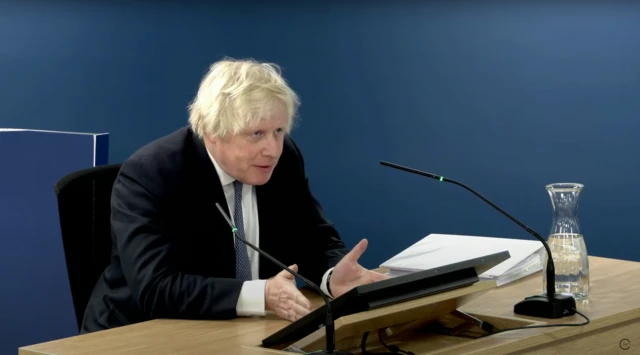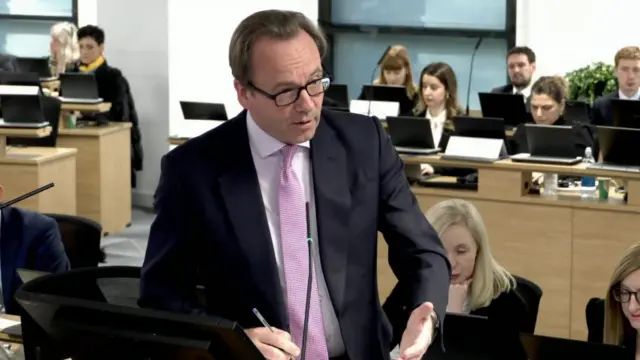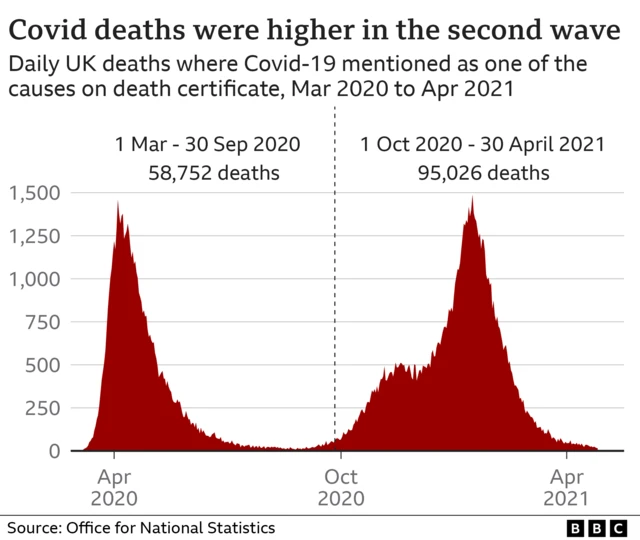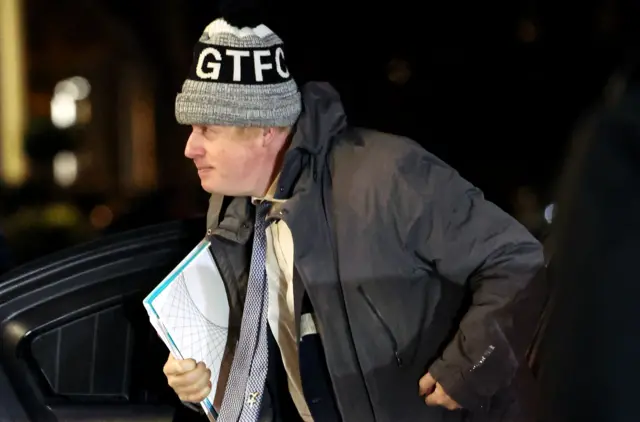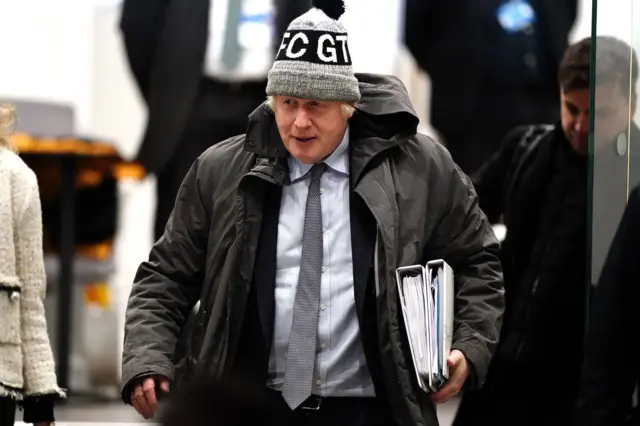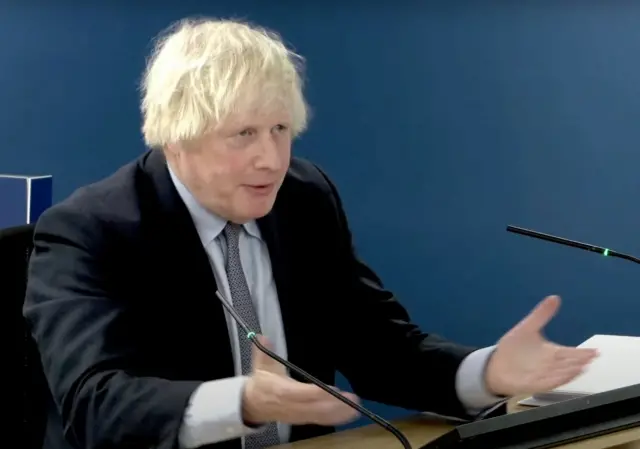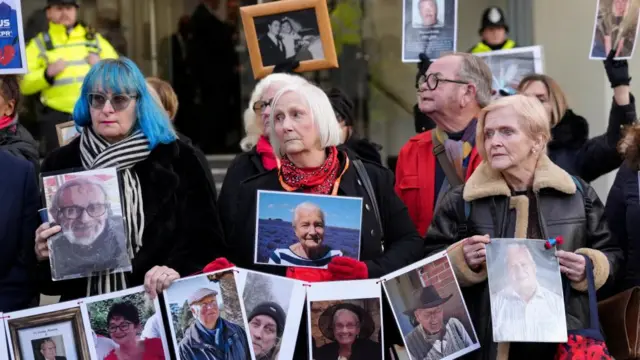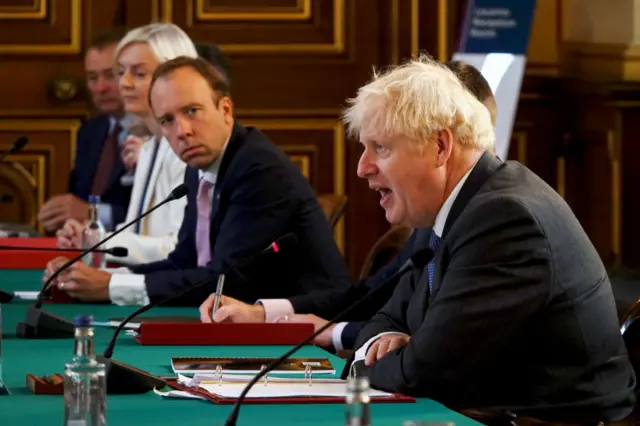Was it 'eat out to help the virus'?published at 10:33 GMT 7 December 2023
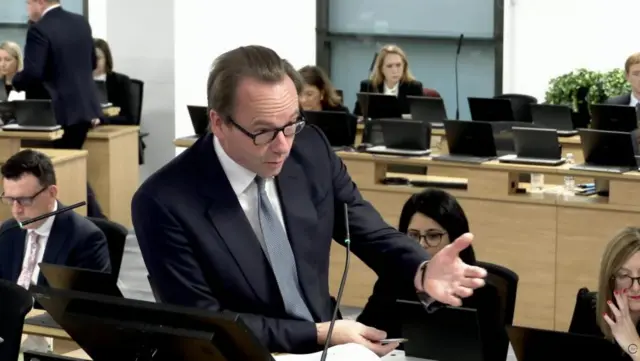 Image source, PA Media
Image source, PA MediaThe inquiry lawyer, Hugo Keith KC, continues to question Johnson on the Eat Out to Help Out scheme.
Johnson says: "It was not, at the time, presented to me as something that would add to the budget of risk."
However, Keith says this presentation came from the government rather than the scientists, and that at no time were scientists consulted over the plans.
Johnson says that he thought scientists had already seen the plans. The Eat Out to Help Our was "not secret" and had been well-publicised, he says. He says the scheme was discussed in meeting where the scientists "must've been present".
"I remember being surprised, when, later - in September 2020 - I heard that Chris [Whitty] said it was 'eat out to help the virus'," he tells the inquiry. "I didn't remember... any previous controversy about it."


